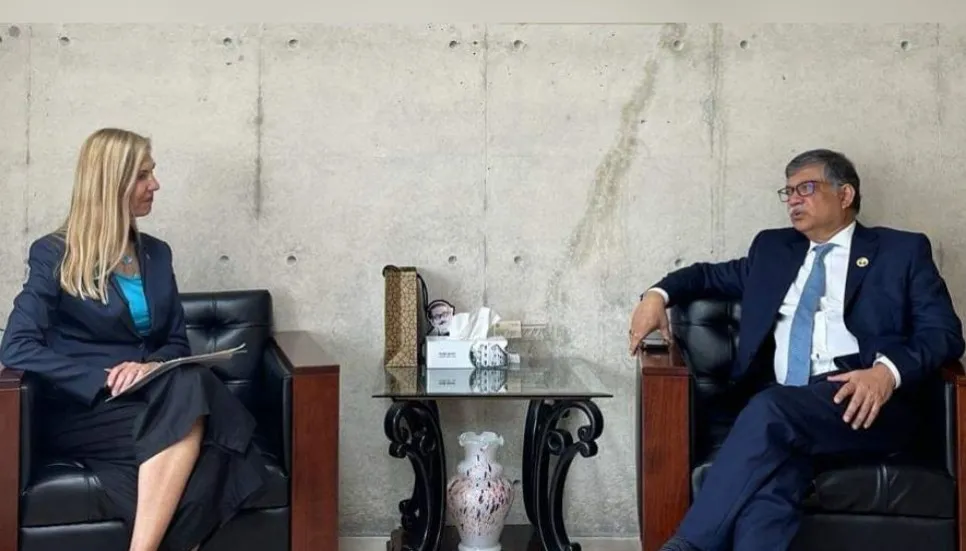
Bangladesh and Germany have agreed that any repatriation of Rohingyas to Myanmar would have to happen in a voluntary, informed, dignified, and sustainable way.
Both sides highlighted the central role that UNHCR would have to play in such a process.
During her meeting with Foreign Secretary Masud Bin Momen in Dhaka on Sunday at the Ministry of Foreign Affairs, Director for Humanitarian Assistance in the Federal Foreign Office of Germany, Susanne Fries-Gaier, expressed deep gratitude towards the Government of the People's Republic of Bangladesh for the support given to the Rohingya refugees.
She appreciated advocacy efforts to further progress on programs that create opportunities, especially for young people and women.
This would empower the refugees upon their return to their homeland, she said.
The Foreign Secretary thanked Germany for its humanitarian support for the Rohingyas.
He also mentioned the challenges Bangladesh is facing due to the extended stay of Rohingyas.
Masud Bin Momen briefed on the ongoing activities to commence repatriation.
Fries-Gaier applauded the initiative taken by the government of Bangladesh to shelter the Rohingyas. She also appreciated the success of Bangladesh in disaster preparedness.
She was in Bangladesh from June 2-5 on an official visit.
In coordination with UNHCR and their close partner, the Republic of Korea, a high-level delegation visited several camps in the Ukhiya cluster as well as a host community against the backdrop of fresh food ration cuts from USD 10 to 8, implemented on June 1.
During her visit, Director Fries-Gaier announced fresh allocations of additional funds towards the Rohingya response in the region, both in Bangladesh and Myanmar, including an additional EUR 5 million in funds for WFP. The total sum of the additional allocations is EUR 12 million.
Throughout the visit exchanges with the UN system, NGOs and beneficiaries on the ground made it clear that the Rohingya response is at a crossroads and all partners should respond with an increased sense of urgency amidst an increasingly difficult security environment and increasing financing gaps.
While stressing the unwavering commitment of the German government to the response, Fries-Gaier observed that the response has to become more sustainable by, among others, extending the donor base to non-traditional actors, including through involvement of private enterprise actors.
Against this backdrop, she was especially impressed by the many efforts of the UN system to further rationalize the response to make it future-proof.
During a dinner hosted by the Embassy, several German-funded NGOs also highlighted the need for close coordination and further localization in the response.
Germany was one of the first countries to recognize Bangladesh's independence in 1971.
Since then more than EUR 3 billion in humanitarian assistance and development funds have supported Bangladesh and its people on its journey towards a developed nation. Germany is also the second biggest humanitarian donor worldwide.